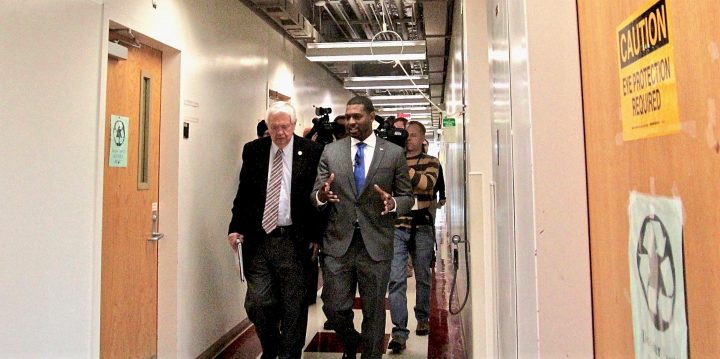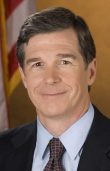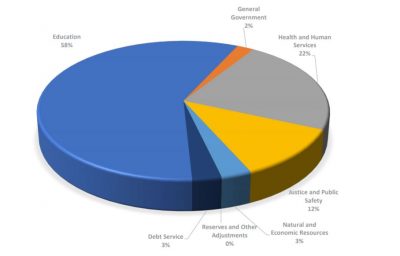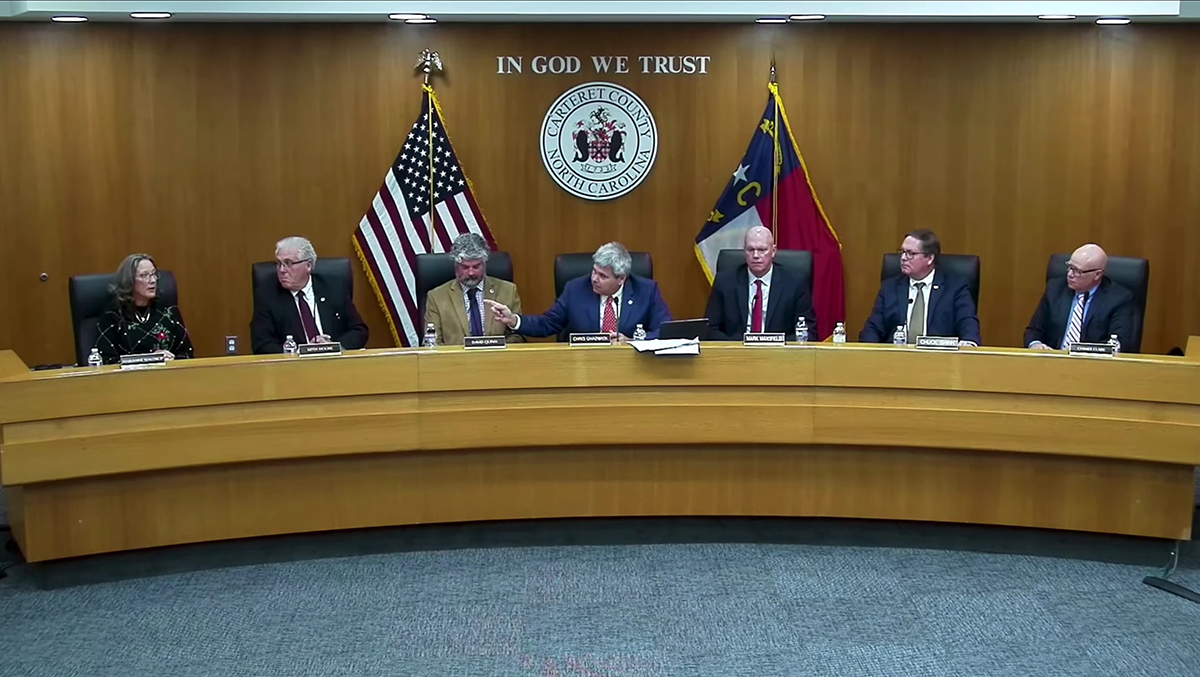
RALEIGH — A major upgrade to Department of Environmental Quality lab facilities, increased staffing for water pollution detection and oversight, and a nearly $1 billion boost in funding for clean water projects statewide are among the dozens of priorities Gov. Roy Cooper outlined in his version of this year’s budget plan.

This is the governor’s third budget, but for the first time he does not face a veto-proof majority.
Supporter Spotlight
State budget director Charlie Perusse told a joint meeting of the House and Senate appropriations committees on Thursday that it’s just the beginning of a long give and take. It’s just the first inning, he said, and the governor intends be involved throughout the process.
But in North Carolina, where the legislature wields the most clout in what goes into the final document, the proposal from the executive branch is more often treated like a ceremonial first pitch. This year was no different in that regard.
A few hours after the plan was released, legislators began to push back. A statement from Senate budget writers said it was not a serious budget and took aim at a lynchpin of Cooper’s spending plan, the $3.9 billion Invest NC Bond proposal, which is intended to address a school construction backlog and would go before the voters in November 2020.
Both Cooper and House Speaker Tim Moore, R-Cleveland, have proposed construction bonds, but early in the session Senate leaders signaled that they are backing a pay-as-you-go plan to deal with the growing backlog of construction and maintenance needs in the state.
Water Quality Initiatives
In making the case for his bond program during his budget presentation Wednesday, Cooper said a major piece of it is at the heart of his water quality initiatives.
Supporter Spotlight
His budget calls for $800 million for “an overhaul of water and sewer infrastructure across the state.”

2019-20. Source: Governor’s office
In a briefing to reporters on Wednesday on budget details, Perusse said those funds would go to support regionalization and greater connectivity among water and sewer systems. It follows concerns raised last year by the state’s Local Government Commission about the growing number of financially distressed water and sewer systems, many in areas hard hit by recent hurricanes, which cannot keep up with maintenance and upgrades.
Perusse said the bonds would go toward needed upgrades in those systems, which in turn would facilitate mergers with larger systems. In hearings earlier this year before a legislative committee looking into water and sewer system viability, maintenance backlogs and the cost of upgrades were cited as a main deterrent to mergers.
Other clean water allocations in the governor’s budget include an increase in the grant funds available through the Clean Water Management Trust Fund, or CWMTF, and the Parks and Recreation Trust Fund, or PARTF. The annual appropriation for both funds would be raised to $20 million and each fund would receive an additional one-time $5 million appropriation.
Both funds also take in some revenue from license plate fees and the total available for PARTF grants for the 2019-20 fiscal year is $26.4 million and $29.5 million for the CWMTF.
About $16 million from the state’s Capital Improvements Projects Reserve would be used for the state match for federal navigation, beach renourishment, flood mitigation and other water resource development projects.
DEQ Upgrades
Cooper is also proposing using limited obligation bonds that do not require voter approval for a $30 million renovation and expansion of DEQ’s Reedy Creek laboratories, home to labs for DEQ divisions that oversee air and water quality regulation.
Last year, several legislators toured the aging complex, and heard an appeal from the department for more space, better ventilation and infrastructure upgrades in light of the increasing demands for testing and monitoring.
Along with the improvements for Reedy Creek, the governor wants to put $12.5 million toward new equipment, additional personnel and a mobile testing lab for analysis of emerging compounds such as GenX and other per- and polyfluoroalkyl substances, or PFAS, and perfluorooctanoic acid, or PFOA, compounds.
The work of the new group also would assist with sampling and other work in conjunction with grant programs for filtration systems at homes where groundwater has PFAS contamination.
Cooper’s budget also includes more technical assistance for farmers and closer monitoring of wastewater management at animal feeding operations, as well as a new program that would cover half of the cost of installing required groundwater-monitoring wells at facilities in the 100-year floodplain.
The state’s Division of Marine Fisheries would see stepped up support for shellfish leasing and stormwater oversight programs and a $1,180,000 in additional one-time funds for oyster sanctuaries, cultch planting and studies of current sanctuary and planting programs and mariculture market analysis. DMF would also get $2 million to help pay for a replacement of the West Bay, a vessel currently used for oyster sanctuary and reef construction.
DMF would also continue to work with the North Carolina Coastal Federation and commercial fishing operations for another round of crab pot and fishing debris cleanup.
The division would also get $1.1 million to upgrade its Marine Patrol equipment.
Other Coastal Funding
Commerce
- Wind Energy — $300,000 for offshore wind infrastructure and supply chain analysis to evaluate state and privately held ports that could support offshore wind maintenance and manufacturing projects.
- Marine Industrial Park — $14.75 million for road and water access, water and sewer and other infrastructure for an industrial park focusing on marine products in Perquimans County.
Natural and Cultural Resources
- Fort Fisher — $8 million for completion of work on the new museum and visitor center.
- Queen Anne’s Revenge — $250,000 in recurring money for further work on the 1718 shipwreck.
- Tryon Palace — $ 100,000 for one-time purchase of new equipment and vehicles to help improved maintenance.
- Graveyard of the Atlantic — $4.2 million toward an extensive renovation and upgrade the HVAC system at the Hatteras museum.
- OBX Trails — $100,000 for the Town of Kitty Hawk for the Sandy Run/Kitty Hawk Park trail connection.
- Sea Turtle Assistance and Rehabilitation Center — $58,592 in annual funding for sea turtle conservation and education staff at the North Carolina Aquarium on Roanoke Island.
Ferry Division
- Fuel, Maintenance Costs — An additional $5 million in recurring funds for additional staffing and increased fuel and maintenance costs.
- Currituck Facility — $1.49 million for a building replacement.
- Ocracoke — $1.19 million for improvements at the ferry quarters on Ocracoke.







